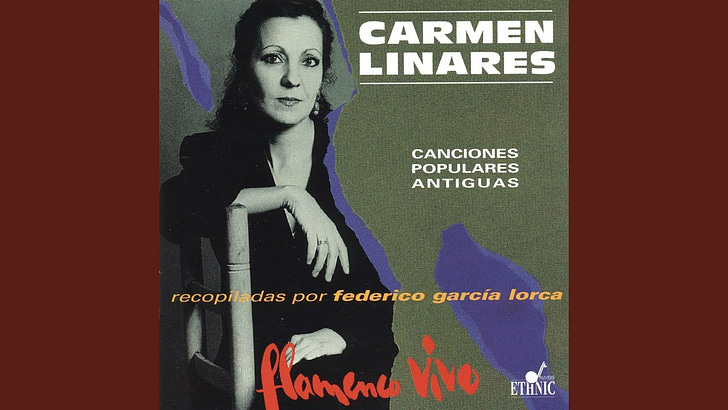Hi all,
Thank you for joining me for this week’s song, Anda jaleo, jaleo, a song from the Spanish Civil War. You can read about the background of the Spanish Civil War here [https://www.louisehaynes.com/history/history.html].
If you’d like to hear the song before you read the background, I’ve included a YouTube video below the article.
Below, you’ll find my translation and interpretation of the lyrics. I’ve written the lyrics in italics. As with most everything, there are many ways to interpret things. I invite you to leave a question or comment.
For Japanese students, vocabulary words in bold are provided in Japanese below.
The article is a bit long, but there is repetition. If you are a language learner, this will help you.
The Song
(1,038 words)
The Spanish poet Federico Garcia Lorca wrote prose and poetry, much of which was about his home town of Granada. He wrote about the hills, the plants, and rural scenes as well as romantic love and tragedy. He studied law at the University of Granada, but went to Madrid to continue his writing. Later, he wrote plays and started a theater company that travelled to small towns.
Although Lorca was not a supporter of any political party, he did not hide his left-leaning political views or his homosexuality. Being a gay man in that time and place, he was looked at with contempt. He wrote that because he always felt different, he felt sympathy for the people of Spain who had been persecuted such as “the gypsy, the negro, the Jew” and the Moor (Gibson 1987).
When the uprising began and Franco’s troops moved through the southern part of Spain, they took over cities like Granada. Lorca was well-known in the town, and had probably made many enemies. Once the new government that supported Franco was set up, Lorca was arrested, taken outside the city, and shot. His body has never been found.
In 1931, Lorca made a recording of a poem he had written. He played the piano and the singer La Argentinita (Encarnación López) sang. The song was called Anda Jaleo, which could be interpreted as Come on, uprising (as if challenging Franco’s forces). It was about a man who had climbed a pine tree to be on the lookout for “her” but he only saw the dust rising from the car that was carrying her. The lyrics include, the protesting has ended and we’re going towards conflict.”
Here is a version by Carmen Linares singing a bulería, the characteristic flamenco style of Jerez de la Frontera:
The Civil War began 5 years later, and this song became one of the songs that the Republicans used to feel united against Franco.
I found three more versions of the song.
From antiwarsongs.org:
El tren blindado also known as El pino verde or Anda, jaleo, was [written] in 1936, based on a popular song copied [from] Federico García Lorca, Los contrabandistas de Ronda. This version [tells of] the actions of an armored train with three of the [rebel] generals against the government of the Republic: Francisco Franco, Emilio Mola and Gonzalo Queipo de Llano. Armored trains were war machines used by the Republicans.
I climbed a green pine tree to see if Franco had arrived, but I only saw an armored train and how well it was shooting. ‘Come on, uprising’ whistles the train, and Franco will take a walk.
Here, a bit of explanation is necessary. “Dar un paseo” (to take a walk) is an indirect term that was used during the Civil War. Many Republican prisoners were taken from their jail cells and were “taken for a walk”, but they never returned because they had been taken out to be shot. Here, the singers are saying that Franco himself will be “taken for a walk”.
Through the highlands of Burgos, Mola walks in rebellion, Mola is up in arms, we’ll see how he runs when the armored train arrives
…and Mola will be taken for a walk.
I left on the armored train on my way to Andalusia and I saw Queipó de Llano, when I saw him backing down, when I saw him backing away
…and Quiepó will be taken for a walk.
A second version (also from antiwarsongs.org) has lyrics that seem to have been superimposed on the previous version. This is typical of songs that are popular and are passed around among the people. New lyrics are added.
With the fifth, fifth, fifth, fifth, with the fifth regiment
Mother, I’m going to the front for the firing lines, dream of the machine gun and the shooting starts
On a July 18th, in the courtyard of a convent, the Communist Party formed the fifth regiment. Here, recall that the Civil War began on the 17th of July. The militias started grouping the next day.
and Franco goes for a walk.
With Lister and Campesino, with Galán and with Modesto, with Commander Carlos, there is no militiaman with fear
• Enrique Lister was the commander of the Republican 11th division.
• Valentín González González was known as “El campesino” (the peasant). He led the 46th Division in the Battle of Brunete and other important battles of the war.
• José María Galán was the leader of the 3rd Mixed Brigade and laster, the 34th Division.
• Juan Modesto was the commander of the 5th Army Corps, and near the end of the war, the prime minister named him the head of the Republican army.
• Carlos Romero Giménez led the6th Division and also participated in the Battle of Brunete.
We are four battalions that are defending Madrid
the best of all Spain, the reddest flower of the people
In those lands of Burgos, Mola was getting angry
We’ll see how he runs when the armored train arrives
I left in the armored train on my way to Andalusia
and I saw that Queipó de Llano, when he saw it (the train), was backing away
I climbed a green pine tree to see if Franco would arrive
and I only saw an armored train how well it was shooting
I climbed a green pine tree to see if I could see him
Lastly, in 1955, an American folk group called The Weavers performed this song at Carnegie Hall. The recording of the song is included below.
In The Weavers Songbook, the lyrics are listed as “a traditional song from the Spanish Civil War, 1936.” The lyrics seem to be based on the second version above:
July eighteenth in the convent courtyard
The people of Madrid founded the Fifth Regiment
Come on uprising, dream of the machine gun…
and Franco goes for a walk.
With the fifth, fifth, fifth, fifth, with the fifth regiment
Mother, I’m going to the front for the firing lines
The Spanish Civil War began 87 years ago this week. The descendants of those who fought on both sides still feel the effects of this war and dictatorship that tore the country apart.
VOCABULARY
prose 散文
rural 田園
tragedy 悲劇
left-leaning リベラル
contempt 軽蔑
sympathy 同情
persecuted 迫害された
gypsy ジプシー
negro 黒人
Jew ユダヤ人
Moor イベリア半島を800年近くにわたって征服した、北アフリカからやってきたアフリカ系黒人とアラブ系の人々。
uprising 蜂起
arrest 逮捕
interpret 解釈
armored 装甲した
superimposed 重ね合わせた
regiment 連隊
machine gun 機関銃
convent 修道院
Communist Party 共産党
militias 民兵
battalion 大隊
descendant 子孫
dictatorship 独裁
Sources
Anonymous - El Tren Blindado. Antiwar Songs (AWS). https://www.antiwarsongs.org/canzone.php?lang=en&id=268 Accessed 9 July 2023.
Gibson, I. (1987). The assassination of Federico García Lorca. Penguin Books.
Guardian News and Media. (2015, April 23). Federico García Lorca was killed on official orders, say 1960s police files. The Guardian. https://www.theguardian.com/culture/2015/apr/23/federico-garcia-lorca-spanish-poet-killed-orders-spanish-civil-war Accessed 9 July 2023.
Lorca, F. G., & Bush, P. R. (2013). Sketches of Spain. Serif Publishing.
The Weavers at Carnegie Hall (1955)
It was also recorded by Joaquin Diaz under the title of Los contrabandistas de Ronda
Joaquin Diaz Recital ℗ 1986
Other articles on the Spanish Civil War:






